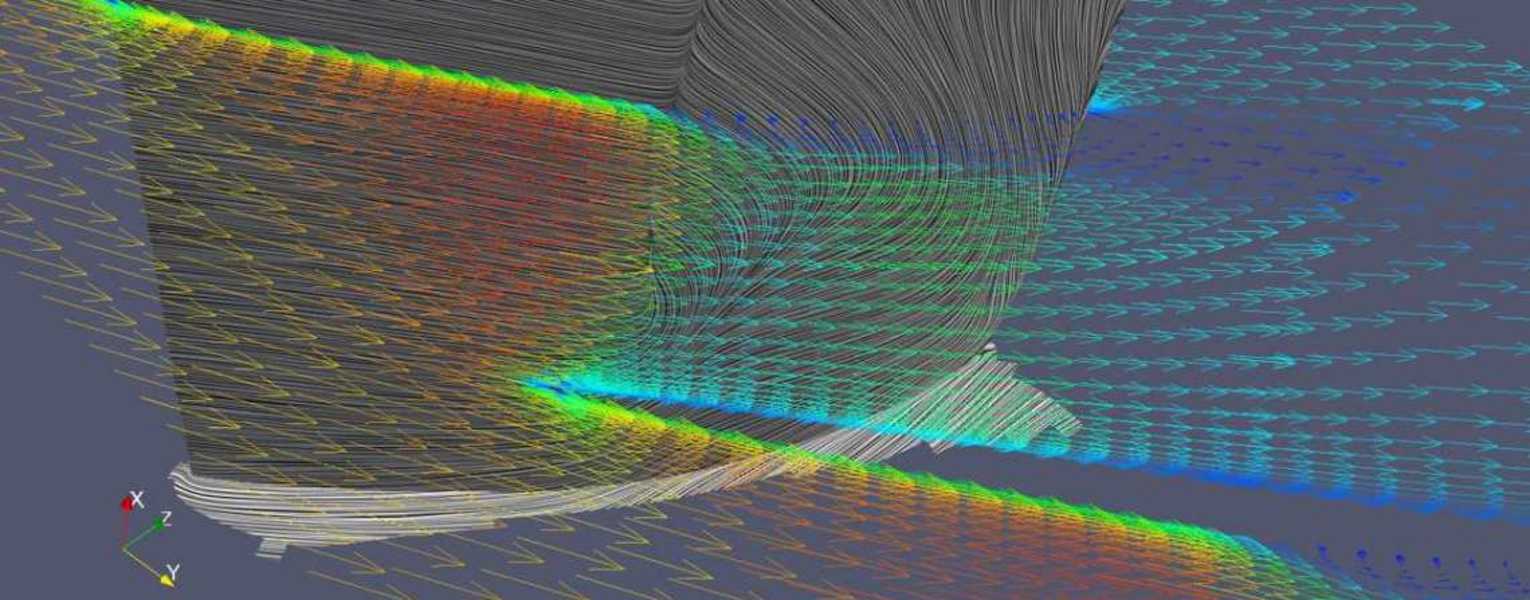Computational fluid dynamics, usually abbreviated as CFD, is a branch of fluid mechanics that uses numerical methods and algorithms to solve and analyze problems that involve fluid flows. For many years, the study of dynamics, heat transfer, combustion, and fluid-structure interaction were unthinkable without the help of CFD, and this dependence has increased as more of the flow becomes amenable to numerical prediction. It is clear that CFD plays a significant role in the effective design, application, and performance evaluation of gas turbines and modern piping systems.
At SwRI, CFD is used comprehensively to solve turbomachinery fluid/thermal problems in tandem with experienced review staff and experimental verification of results. Its use in internal flow investigations is usually focused on examining phenomena such as:
- Blockages
- Pressure/velocity profiles
- Thermal transients
- Acoustic/mechanical resonances
- Effects of multiple operating conditions
Computational Fluid Dynamics Capabilities
- Axial/centrifugal compressors and radial turbine performance predictions
- Wind turbine performance predictions
- Axial/centrifugal fan
- Internal pipe/valve flows
- Onset of stall, surge, flutter
- Fluid-structure interaction
- Fluid-acoustic interaction
- Conjugate heat transfer
- Combustion modeling
SwRI maintains a variety of commercial and SwRI-developed analysis and computational codes to meet specific needs. Computational fluid dynamics is used along with other analysis, 1D modeling and a number of flow facilities to support simulations and understanding of fluid flows.
SwRI can offer you a full range of capabilities and experience in computational fluid dynamics, including becoming an extension of your engineering department. Contact us for more information about turbomachinery and piping system computational fluid dynamics at SwRI. To contract with SwRI, please contact the Machinery Services Hotline at +1 210 522 3000.
For more information, contact Tim Allison or call +1 210 522 3561.

